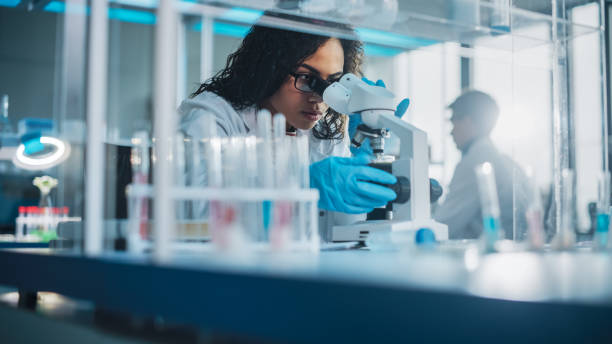Nigeria has made significant strides in local drug manufacturing, with production of basic pharmaceuticals approaching 60%, according to Anthony Oyawole, former presidential aspirant of the Pharmaceutical Society of Nigeria (PSN). This progress is attributed to the efforts of the Pharmaceutical Manufacturers Group of the Manufacturers Association of Nigeria, working closely with the government.
Oyawole spoke on Channels Television’s Breakfast programme, Morning Brief on a day pharmacists around the world were marking World Pharmacist Day, an annual event to honour pharmacists contributions to better health outcomes.
The theme of the 2025 edition emphasizes that pharmacists are not just dispensers of medicines but critical healthcare providers contributing to patient care, health promotion, and system-wide health improvements.
The growth in local production of pharmaceuticals is crucial for Nigeria’s medicine security, especially during health emergencies. The COVID-19 pandemic exposed vulnerabilities in global supply chains, highlighting the need for countries to develop their own pharmaceutical capabilities. Nigerian pharmaceutical firms have achieved WHO qualification, enabling them to manufacture medicines for both local use and international markets, including Europe and America. This achievement demonstrates the industry’s potential to meet international standards and compete globally.
Local production currently focuses on essential drugs such as antimalarials, multivitamins, analgesics, and other medicines for common ailments. This shift towards self-sufficiency in basic pharmaceuticals can improve healthcare outcomes and reduce reliance on imports. The significance of this progress cannot be overstated. A robust pharmaceutical industry can create jobs, stimulate economic growth, and enhance Nigeria’s healthcare system.
The Pharmaceutical Society of Nigeria and the Manufacturers Association of Nigeria’s collaborative efforts with the government are crucial to sustaining this momentum. Local production and pooled procurement strategies can help lower drug prices, making medicines more affordable and accessible to a larger population. Moreover, this collaboration can facilitate the development of new products, improve quality control, and enhance regulatory frameworks.
Initiatives like the African Continental Free Trade Area (AfCFTA) can facilitate regional collaboration and knowledge sharing. This can help countries with less developed pharmaceutical industries to learn from others and build their capacity. The AfCFTA can also provide opportunities for Nigerian pharmaceutical companies to expand their market reach and increase their competitiveness.
The National Agency for Food and Drug Administration and Control (NAFDAC) has maintained its World Health Organization (WHO) Maturity Level 3 (ML3) status, demonstrating its capacity to regulate medicines and vaccines effectively. This achievement is a testament to NAFDAC’s commitment to ensuring the quality, safety, and efficacy of medicines and vaccines in Nigeria.
As Nigeria joins the global community to mark World Pharmacists Day, Oyawole’s remarks highlight the strategic role pharmacists play in strengthening national health systems. Pharmacists are essential healthcare professionals contributing significantly to patient care, health education, and disease prevention. The theme for this year’s World Pharmacists Day, “Think Health, Think Pharmacy,” underscores the importance of pharmacists in the healthcare ecosystem.
To further build on this progress, the Nigerian government can implement policies supporting the growth of the pharmaceutical industry. This includes providing incentives for local manufacturers, investing in research and development, and ensuring access to affordable raw materials.
Moreover, strengthening regulatory frameworks can help ensure that locally produced medicines meet international standards, enhancing their competitiveness in the global market.
Investment in Active Pharmaceutical Ingredients (APIs) is also crucial for the growth of the industry. By investing in API locally, Nigeria can reduce its reliance on imported finished drugs and create more jobs. This can also lead to the development of new products and improvement in the quality of existing ones.
In conclusion, Nigeria’s progress in local drug manufacturing is a positive development that can improve healthcare outcomes and reduce reliance on imports. With continued support and investment, Nigeria’s pharmaceutical industry can thrive, contributing to the country’s economic growth and healthcare development. By harnessing the potential of its pharmaceutical industry, Nigeria can make significant strides in improving public health and achieving self-sufficiency in medicine production.
The future of Nigeria’s pharmaceutical industry looks promising, with opportunities for growth and development. However, sustained efforts and collaboration between the government, industry stakeholders, and international partners are crucial to achieving this vision.
By working together, Nigeria can build a robust pharmaceutical industry that meets the needs of its people and contributes to the country’s economic growth and development





